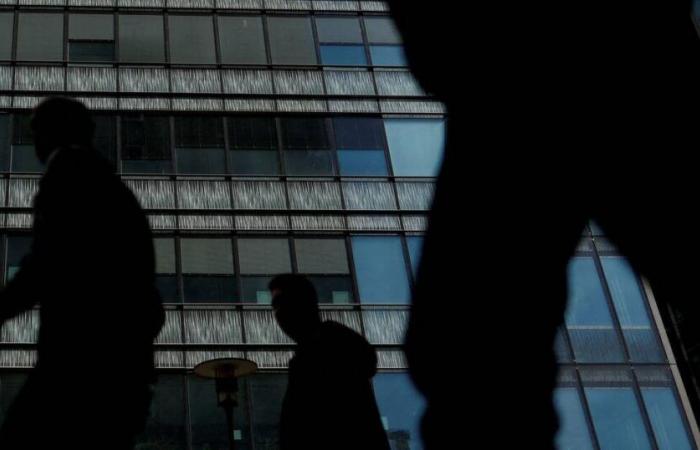According to the annual survey by the Executive Employment Association, their median salary has increased less than inflation since 2019. However, a majority of respondents are satisfied with their remuneration.
Inflation spares no one. The median remuneration of executives has increased less quickly than inflation since 2019, reveals a study carried out by the Association for the Employment of Executives (Apec) published Thursday, November 21. According to the Apec barometer, it is set at 54,000 euros, fixed and variable included, an increase of 1.9%, when inflation was 4.9% in 2023 according to INSEE. More than six out of ten executives surveyed – the annual survey was carried out in June among 14,000 private sector employees – also feel that their purchasing power has deteriorated with Covid-19 and 56% between them judge their prospects for salary development “not interesting” in the next three to five years. And yet, a majority (63%) is satisfied with their remuneration.
The study also shows “a record level” of executives having benefited from an increase in 2024, to 60%, noted the director general of Apec, Gilles Gateau. However, insufficient to offset the effects of inflation. This rate, which includes individual and general increases, is “usually” below 50%. An increase in salaries which has affected young people more: 74% of those under 30 have received an increase while the median remuneration of seniors aged 50 and over stagnates.
Equal pay for women and men “in 172 years”
In terms of gender equality, the study shows that the gap “unexplained” is maintained: for identical profiles and positions, male executives still earn 6.9% more than female executives (the gap «brut» being 12%). Noting that the gap was 7.1 in 2019, Gilles Gateau saw this as “a pace that would allow us to reach equality in 172 years…”.
On the employment side, the director of Apec highlighted the context of the labor market for 2025 “which many economists anticipate slowing down”, while noting that the dynamics of executive employment is unique and that “the last year when we experienced a negative development in managerial employment, [remonte à] 1991».
Last October, INSEE already made the same observations throughout the private sector. If average net salaries increased by 4% between 2024 and 2023, inflation negatively offsets this. Concretely, the purchasing power of the average net salary decreased by 0.8% in 2023. A decline which affects all social categories (-0.3% for workers and -0.5% for employees) but more particularly executives (-2.8%).
But over the last five years, it is the employees of the “second line”, cashiers, maintenance workers and even food industry workers, who were most affected by inflation: their salaries fell by 0.7%, once inflation was taken into account, compared to 0. 2% for other workers and employees. In the midst of the Covid period, Emmanuel Macron had nevertheless promised to remember that “our country, today, relies entirely on women and men whom our economies recognize and pay so poorly.”






